
Embarking on the journey to acquire a property in Portugal is akin to navigating threads of history, culture, and modernity. For foreigner investors interested in a good yield, 2025 presents a roll of opportunities as attractive as the golden shades of a Lisbon sunset. This comprehensive Real Estate purchase guide aims to demystify the process of buying property in Portugal, offering a compass to navigate you through the complexities and peculiarities of this industry.
Why Buy Property in Portugal?
Portugal's real estate market has demonstrated remarkable resilience and growth over the past decade. Despite global economic challenges, including the pandemic's aftermath, the country's property sector has flourished. According to data released by Statistics Portugal (INE) on 22nd October 2024, the median house price soared to €1,736 per square metre, a significant leap from €763 in July 2014. This upward trajectory underscores not just a market recovery in the last decade but a booming sector ripe with investment potential.
But real estate is not just about numbers and profitability. Despite purely investment reasons, Portugal actually offers an enviable lifestyle with its mild climate, rich cultural heritage, and friendly communities, making it a perfect place for those who wants to enjoy a quiet life. The country's strategic location at the crossroads of Europe and America makes it a convenient hub for travel and business. Furthermore, political stability and progressive policies have fostered an environment conducive to foreign investment, enhancing its appeal to international buyers.
Can Foreigners Buy Property in Portugal?
Yes, foreigners can freely purchase property in Portugal without any significant restrictions. The Portuguese government has historically welcomed international investors, recognising the positive impact this brings to the economy. Whether you are from the European Union or a non-EU country like the United States, the operation remains accessible.
However, you need to understand that to initiate the process, you will need a Portuguese Tax Identification Number (Número de Identificação Fiscal or NIF). This number is essential for all fiscal activities in Portugal, including property transactions, opening a bank account, and setting up utilities. Obtaining a NIF is a straightforward procedure that can be facilitated by local tax offices or through a legal representative, such as Portugal Homes.
While the legal framework is accommodating, it is crucial to conduct thorough due diligence. Engaging a reputable real estate agency and a legal advisor familiar with Portuguese property law can help navigate any complexities, ensuring a smooth and secure transaction.

Portuguese Real Estate Market Overview and Property Prices
The Portuguese real estate market continued to attract international investors in 2024, driven by consistent growth and strong demand. The country's economic indicators are promising, with the Gross Domestic Product (GDP) experiencing a real growth of 1.5% in the first quarter compared to the same period in 2023. Forecasts suggest this momentum will carry forward, bolstered by private consumption and foreign investments.
In 2025, no significant changes will affect Portugal's real estate market, and it will continue to be a top choice for savvy investors and lifestyle seekers, offering incredible value and charm. The country has not failed investors in the property demand, and wealth of stunning properties under €300,000 are still easily findable in every region. From cozy apartments in historic cities like Lisbon and Porto to picturesque villas in the Algarve, Portugal offers a unique blend of affordability, beauty, and potential for long-term growth. Now is the perfect time to discover your dream property in this enchanting European destination!
Property prices have reflected the country’s economic vitality. The surge in Portuguese median house prices to €1,736 per square metre represents an increase of 6.6% compared to the same period in 2023. Regions like Lisbon and Porto have seen even more pronounced growth, with foreign investors often buying properties in higher prices per square metre areas than domestic purchasers—80.4% more in Lisbon and 53.4% more in Porto. This disparity highlights the high demand for premium locations and properties among international investors.

Where to Buy Property
Choosing the right location is a crucial decision when investing in Portuguese real estate. The country's regions vary widely in terms of lifestyle, property types, and investment potential. From the vibrant urban centres with culture and innovation to the serene coastal towns offering a slower pace of life, Portugal caters to a multitude of preferences. In the following sections, we will approach some of the most sought-after areas to help you determine where to buy property in Portugal, aligning your choice with both your personal desires and investment objectives.
Lisbon
As the vibrant capital, Lisbon offers a blend of historic charm and modern amenities. Neighbourhoods like Santo António and Marvila have recorded the highest median housing prices, surpassing €6,000 per square metre. The city's dynamic atmosphere, cultural attractions, and booming tech scene make it a hotspot for property investment. Areas like Areeiro with €4,971/m², representing a 22.1% increase, and Belém with €4,815/m² and 10.3% increase, are witnessing substantial growth, indicating strong future potential.
See more: Properties for sale in Lisbon
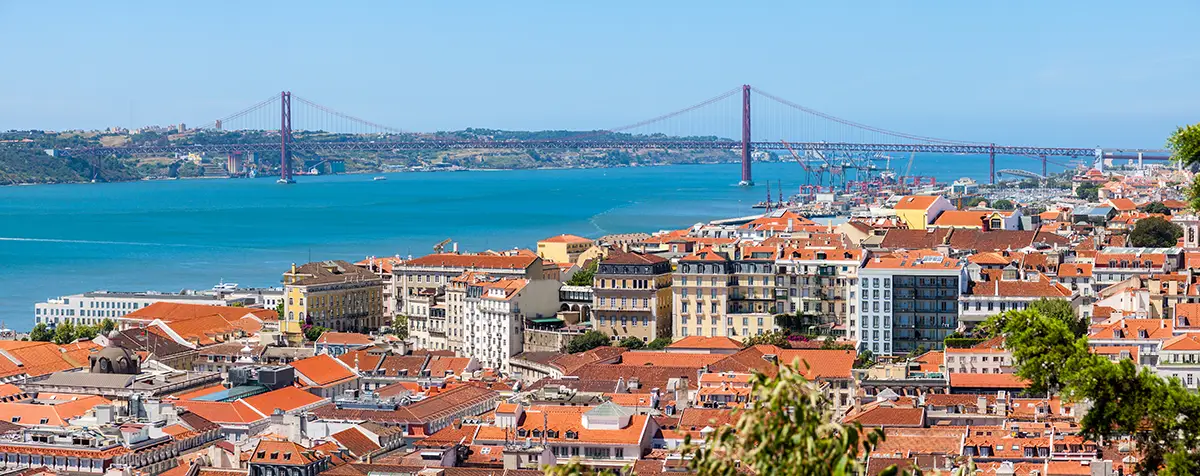
Porto
Porto, renowned for its historic architecture and the famous Douro River, presents a compelling case for investment. Districts such as Aldoar, Foz do Douro, and Nevogilde lead with median prices nearing €4,000 per square metre. The city's growth is evident in areas like Campanhã, which saw a staggering 51.9% increase in median prices due to new housing developments and infrastructure improvements like the new train and bus station.
See more: Properties for sale in Porto
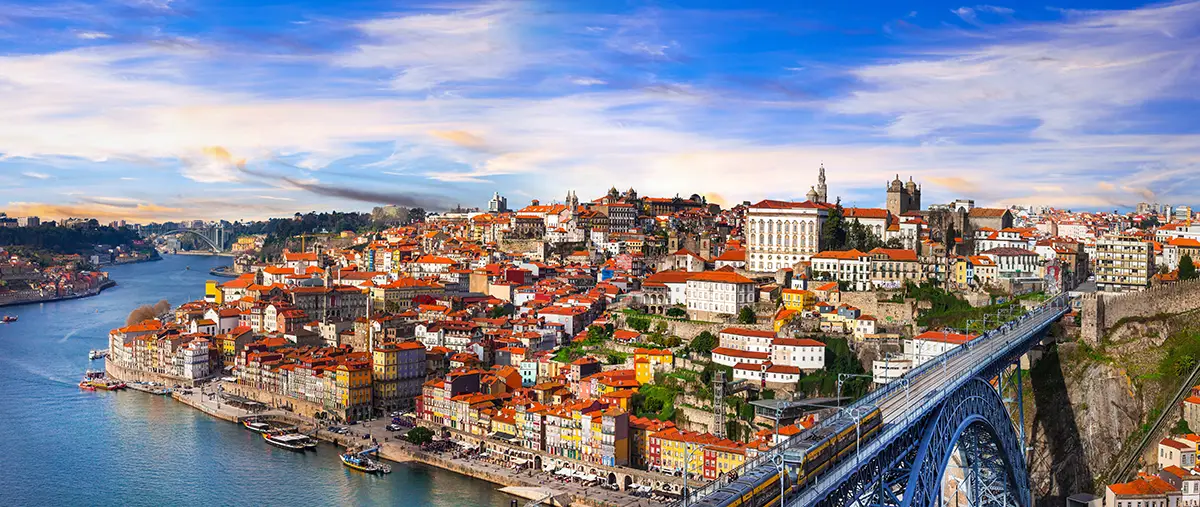
The Algarve
The Algarve region is synonymous with stunning beaches, golf resorts, and a warm climate. It is an ideal location for holiday homes purchase, hospitality investments such as boutique hotels, and short rental properties, attracting tourists year-round. Cities like Loulé and Lagos boast high property values, with median prices over €3,000 per square metre. The region's appeal ensures strong rental yields and long-term appreciation.
See more: Properties for sale in the Algarve
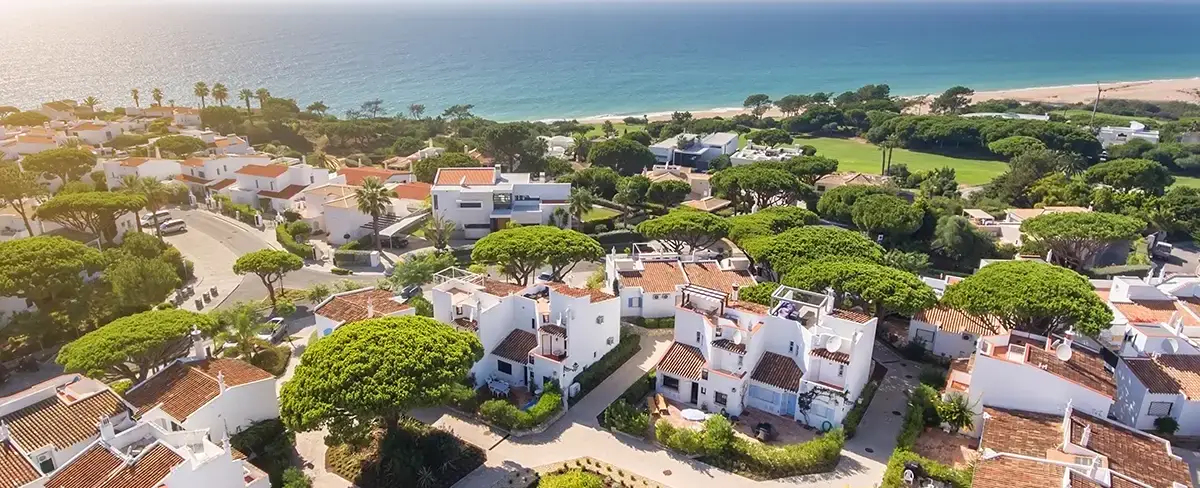
The Silver Coast
Less frequented but equally enchanting, the Silver Coast offers picturesque landscapes and a quieter lifestyle. Towns like Nazaré and Peniche provide affordable options with the potential for growth as the area gains popularity among foreign buyers seeking authenticity away from the more tourist-centric regions.
See more: Properties for sale in the Silver Coast
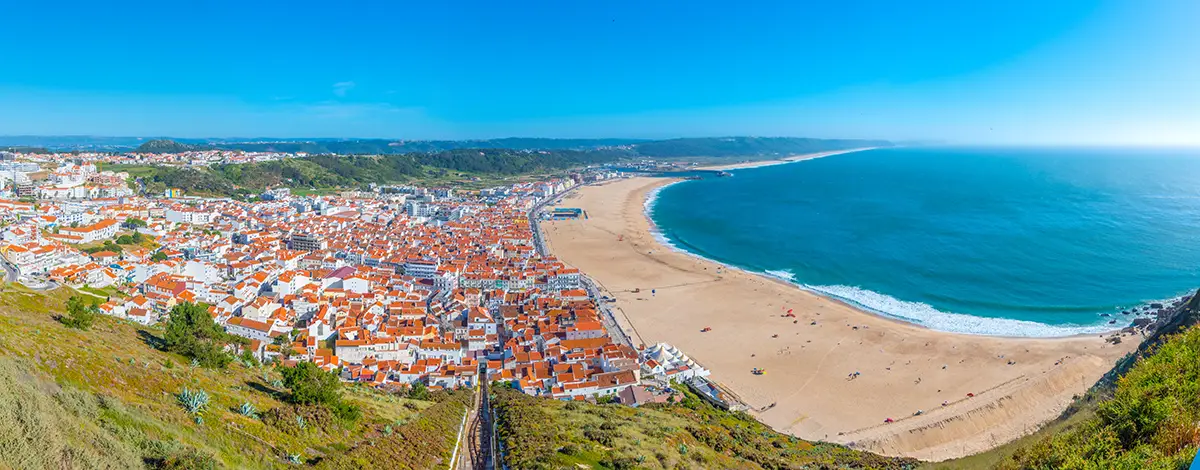
Types of Property in Portugal
Portugal's property market is diverse, catering to a wide range of preferences and budgets. Options include:
- Apartments: Ideal for urban living, especially in cities like Lisbon and Porto. Modern developments offer luxury amenities, while older refurbished buildings provide historic charm.
- Villas: Common in the Algarve and other coastal regions, villas often feature private pools, gardens, and panoramic views.
- Townhouses: Found in both urban and rural settings, these properties blend traditional architecture with modern comforts.
- Quintas: Rural estates or farmhouses, perfect for those seeking a countryside retreat.
- Off-Plan Developments: Investing in properties under construction can offer cost savings and customisation options.
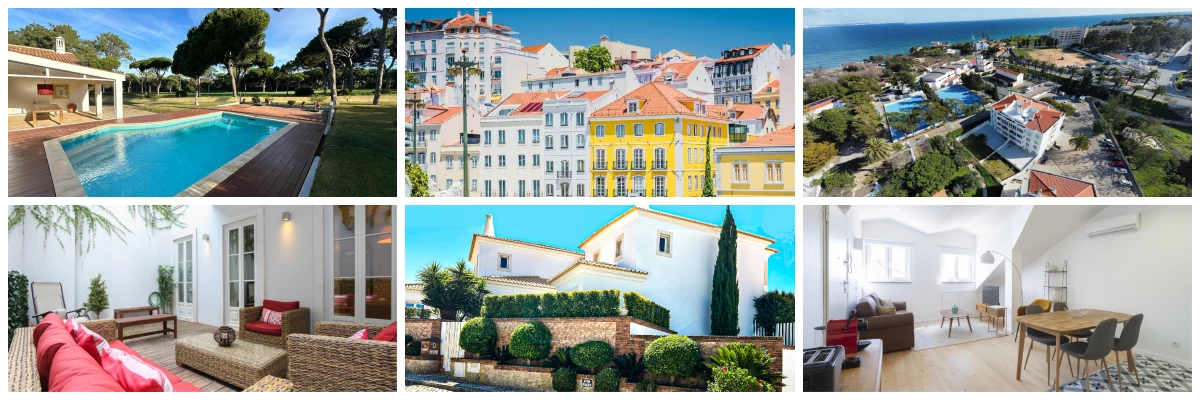
How to Find a Property in Portugal
Embarking on your property search requires a strategic approach:
- Engage a Reputable Real Estate Agent: Agencies like Portugal Homes offer expertise and a curated portfolio of properties to match your criteria.
- Property Exhibitions and Fairs: These events provide opportunities to view multiple options and meet industry professionals.
- Visit Potential Properties: Whenever possible, visit properties in person to assess their condition and surroundings.
Remember, patience and due diligence are essential. The right property is out there; it just requires thorough exploration.
Property Management
For those not residing in Portugal full-time, property management services are invaluable. Companies like Portugal Homes After Sales offer comprehensive solutions, handling everything from snagging, during the pre-purchase period, to maintenance and tenant relations and legal compliance after the ownership of the property is yours.
Effective property management ensures your investment remains well-maintained and profitable, especially if you plan to rent it out. Professional managers can navigate local regulations, handle bookings, and provide peace of mind.

Step-by-Step Guide to Buying a Property in Portugal
Navigating the Portuguese property market can be a rewarding endeavour, but it is essential to approach the process methodically to secure a successful purchase. From securing the necessary legal documents to finalizing the deed, each step requires careful attention and, often, professional guidance. Below, we have outlined a step-by-step guide to help you understand the key stages of buying a property in Portugal, providing clarity and confidence as you embark on your investment journey.
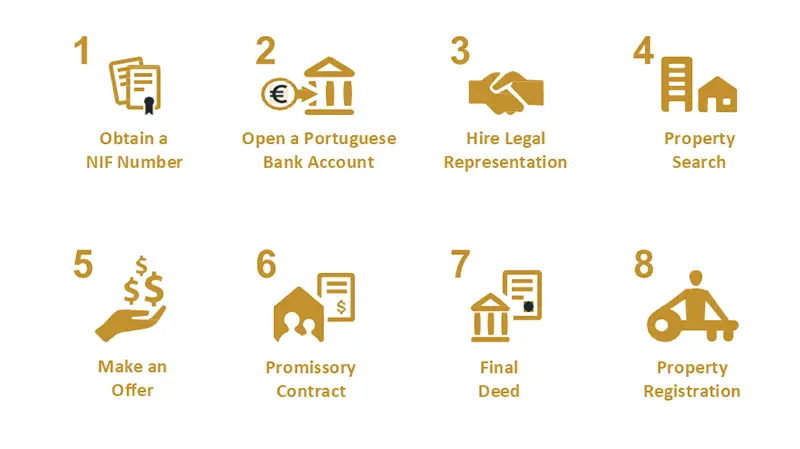
- Obtain a NIF Number: Essential for all fiscal activities, acquire this through a local tax office or legal representative.
- Open a Portuguese Bank Account: Facilitates transactions and ongoing expenses like utilities and taxes.
- Hire Legal Representation: A lawyer ensures due diligence, reviews contracts, and verifies the property's legal status.
- Property Search: Collaborate with your real estate agent to find properties that meet your needs.
- Make an Offer: Once you find a suitable property, submit a formal offer through your agent.
- Promissory Contract (CPCV): A preliminary agreement outlining the terms of the sale, typically accompanied by a deposit.
- Final Deed (Escritura Pública): The official transfer of ownership, signed before a notary.
- Registration: Register the property in your name at the Land Registry and Tax Office.
Each step is crucial, and professional guidance ensures compliance with Portuguese laws and regulations.
What Is Required to Buy a House in Portugal?
Purchasing a house in Portugal is more than just finding the perfect property; it requires careful preparation to comply with the country's legal and administrative requirements. Being thoroughly acquainted with these necessities not only streamlines the buying process but also safeguards your interests as a foreign investor. Below, we detail the essential documents and considerations you will need to have in order when setting out to acquire property in Portugal.
- Valid Identification: Passports or national ID cards.
- Portuguese Tax Identification Number (NIF): As mentioned before, this is mandatory.
- Financial Documentation: Proof of income and funds, especially if applying for a mortgage.
- Portuguese Bank Account: While not legally required, it is practical for handling transactions.
- Legal Assistance: A lawyer to oversee the process and protect your interests.
- Property Documentation: Access to the property's legal records, ensuring it is free from debts or legal issues.
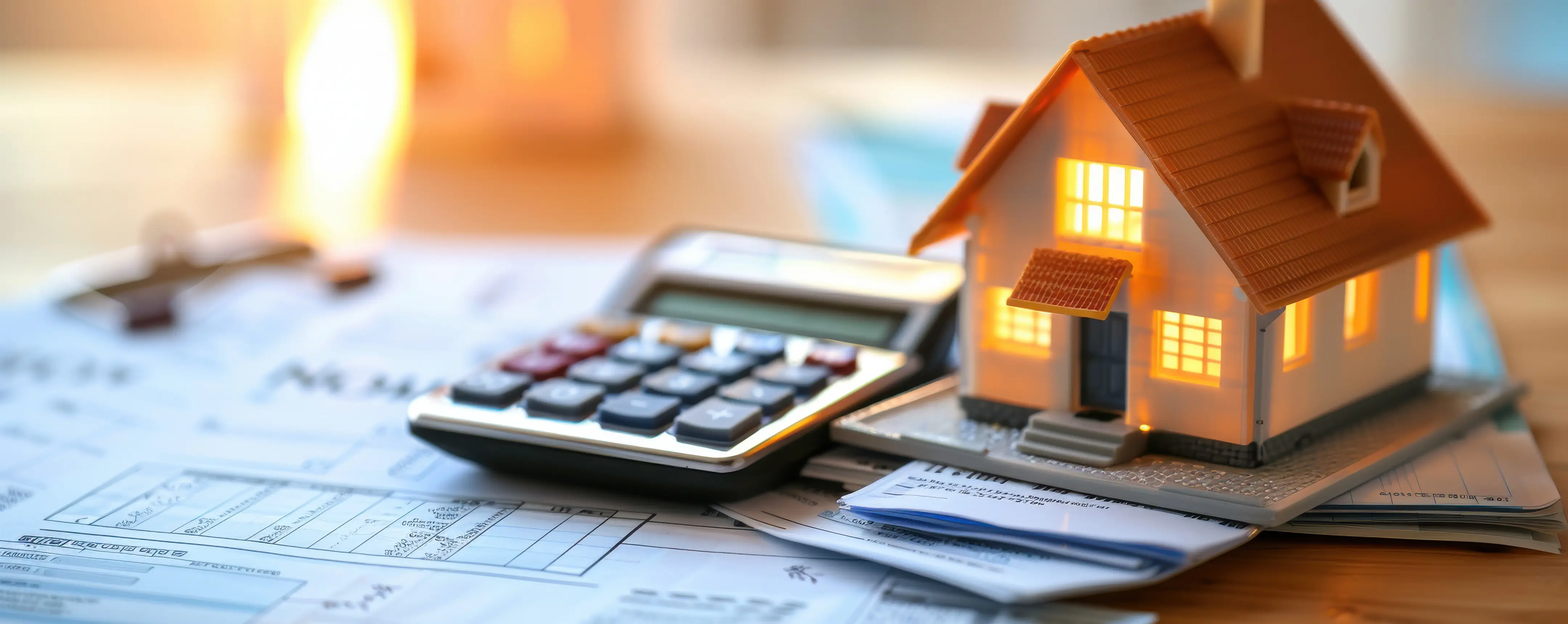
Taxes and Property Purchase Costs
When purchasing property in Portugal, consider the following costs:
- Property Transfer Tax (IMT): Rates vary based on property value and type. For investors under 35 years old, with no other property under their names, this tax is not required.
- Stamp Duty (Imposto de Selo): Typically, 0.8% of the purchase price.
- Notary and Registration Fees: For legalising the transaction.
- Legal Fees: Your lawyer's fees for handling the process.
Annual costs include: - Municipal Property Tax (IMI): Calculated annually based on the property's tax value.
- Wealth Tax (AIMI): Applicable to properties valued above certain thresholds.
Understanding these costs upfront ensures accurate budgeting and prevents surprises.
Pitfalls of Buying a Property in Portugal
While the process of buying a property in Portugal is generally smooth and straightforward, potential pitfalls can happen, and you should be aware of them. Those include:
- Hidden Property Issues: Structural problems or undisclosed debts attached to the property. This is why having a good real estate agent, capable of doing snagging, would be recommended.
- Legal Complexities: Navigating local laws without professional help can lead to mistakes.
- Market Fluctuations: Economic shifts affecting property values. Although Portugal presents a stable real estate market, it is important to be aware of fluctuations.
- Cultural and Language Barriers: Misunderstandings due to language differences.
Encountering pitfalls is common when navigating the real estate market, but that is exactly why real estate agencies like Portugal Homes exist—to provide expert guidance and support every step of the way. Mitigate these risks by conducting thorough due diligence, engaging professionals, and being mindful of market conditions.
Does Buying Property Qualifies Foreigners to the Golden Visa?
As of 6th October 2023, the Portuguese government discontinued the real estate investment option under the Golden Visa programme. While this route is no longer available, the Golden Visa remains operational through other investment paths, such as:
- Investment Funds: Investing €500,000 in qualified funds is still the best option to acquire a Portuguese residency and open the path to citizenship.
- Job Creation: Establishing a business that creates at least ten jobs.
- Cultural and Scientific Contributions: Donating €250,000 to cultural projects or €500,000 to scientific research.
For those specifically interested in property investment, alternative residency options like the D7 and D2 visas may be suitable.
Residency Visa Options for Property Buyers
D7 Visa
Ideal for retirees and those with passive income, the D7 Visa allows residency without significant investment. Proof of sufficient income to support living in Portugal is required.
D2 Visa
The D2 Visa targets entrepreneurs and investors planning to start a business in Portugal. While property purchase is not mandatory, owning property can strengthen your application. Both visas offer a pathway to residency and eventual citizenship, providing alternatives to the Golden Visa.
Is It Worth Buying a Property in Portugal?
Investing in Portuguese real estate in 2025 is considered a sound decision by many experts. The country's stable economy, strong rental market, and potential for property appreciation present compelling reasons to buy.
This said, the quality of life in Portugal—marked by a pleasant climate, safety, and rich cultural experiences—adds intangible value to your investment. Whether for personal use, rental income, or long-term investment, buying property in Portugal offers a blend of financial and lifestyle benefits.
FAQs
Can foreigners buy property in Portugal?
Yes, foreigners can purchase property in Portugal without restrictions. The process is transparent and accessible to international buyers.
What is the process of buying property in Portugal as a foreigner?
The process involves obtaining a NIF number, opening a Portuguese bank account, engaging legal assistance, finding a property, making an offer, signing contracts, and completing the transaction before a notary.
Are there any pitfalls to be aware of when purchasing property in Portugal?
Potential pitfalls include hidden property issues, legal complexities, and market fluctuations. It's essential to conduct thorough due diligence, verify property titles, and consult with real estate and legal professionals.
Can US citizens buy property in Portugal?
Yes, non-European citizens can freely purchase property in Portugal, following the same procedures as EU nationals.
Do I need to buy property to obtain residency in Portugal?
No, buying property is not a requirement for residency. Alternative visas like the Golden Visa Funds investment and D2 offer residency pathways without mandatory property investment.
Is buying a house in Portugal a good investment?
Investing in Portuguese property is very advantageous due to market growth, rental demand, and the country's overall appeal to both tourists and expatriates.
What are the costs associated with buying property in Portugal?
Additional costs include Property Transfer Tax (IMT), Stamp Duty, notary and registration fees, legal fees, and annual Municipal Property Tax (IMI). These can add approximately 6-10% to the purchase price.
Do I need a lawyer to buy property in Portugal?
While not legally required, it is highly recommended to engage a lawyer. A legal professional can help navigate the process, review contracts, ensure the property is free of debts or liens, and protect your interests.
Can I get a mortgage in Portugal as a foreigner?
Yes, Portuguese banks offer mortgages to non-residents. Typically, banks will finance up to 70% of the property's value for non-residents, subject to credit approval and financial assessment.
How long does it take to buy a property in Portugal?
The process can take anywhere from one to three months, depending on various factors such as financing arrangements, legal checks, and negotiations.
What documents are required to buy property in Portugal?
You will need a valid passport or ID, a Portuguese tax identification number (NIF), proof of income or financing, and any documents related to the property (provided by the seller). A lawyer can help ensure all necessary documentation is in order.
Are there property taxes in Portugal?
Yes, property owners are subject to Municipal Property Tax (IMI), which is calculated annually based on the property's tax value. Additionally, there may be a Wealth Tax (AIMI) for properties valued above certain thresholds.
Can I rent out my property in Portugal?
Yes, you can rent out your property. Rental income is subject to taxation, and you may need to comply with local regulations, such as obtaining a rental license for short-term holiday lets.
What are the best areas to buy property in Portugal?
Popular areas include Lisbon for urban living, Porto for cultural heritage, the Algarve for coastal properties, and the Silver Coast for a balance of affordability and scenic beauty. The best area depends on your personal preferences and investment goals.
Do I need to be in Portugal to complete the purchase?
While visiting the property in person is advisable, it's possible to complete the purchase remotely by granting power of attorney to your legal representative in Portugal.
Is it better to buy a new build or a resale property in Portugal?
Both options have advantages. New builds offer modern amenities and may have lower maintenance costs, while resale properties can offer character and may be located in established areas. Consider factors like location, price, and personal preferences.






